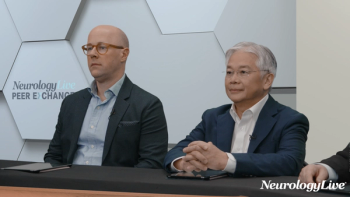
Beth Stein, MD, reviews critical steps towards diagnosing MG, taking a look at the different types of reliable testing for the disease.

Beth Stein, MD, reviews critical steps towards diagnosing MG, taking a look at the different types of reliable testing for the disease.
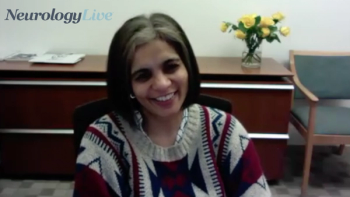
The associate professor of clinical neurology at Weill Cornell Medicine discussed the progress made in multiple sclerosis in terms of expanding access to therapies and the challenges that persist for progressive forms of the disease in the field. [WATCH TIME: 10 minutes]
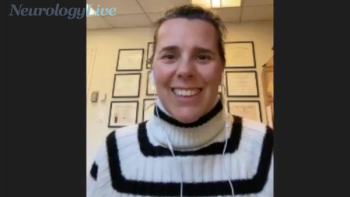
The medical director of the Center for Sleep Medicine at Weill Cornell Medicine talked about the importance of sleep health in modern life with the increasing prevalence of sleep disorders such as narcolepsy in the United States. [WATCH TIME: 5 minutes]
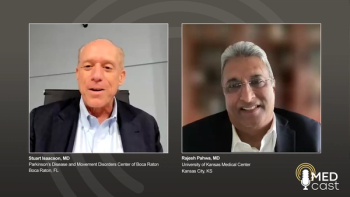
The neurology experts discuss the importance of early and accurate diagnosis of Parkinson’s disease, the role of alpha-synuclein in the diagnosis of synucleinopathies and approaches to implementing screening protocols in clinical practice.
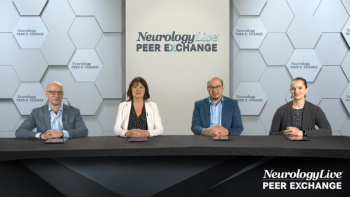
Ahmed Obeidat, MD, PhD, Riley Bove, MD, Stephen Krieger, MD, and Erin Longbrake, MD, PhD, discuss the nuances of treatment selection based on age of onset of MS.

Ahmed Obeidat, MD, PhD, Riley Bove, MD, Stephen Krieger, MD, and Erin Longbrake, MD, PhD, review the practical application of PIRA in clinical approaches to addressing inflammation and slowing the progression of MS.
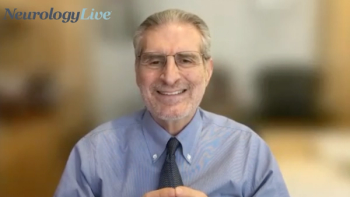
The director of the Feil Family Brain and Mind Research Institute at Weill Cornell Medicine discussed ways to use a comprehensive approach when maintaining brain health. [WATCH TIME: 7 minutes]
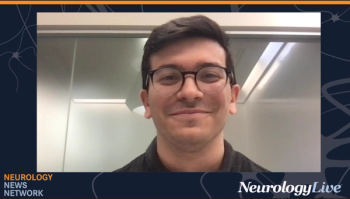
Neurology News Network. for the week ending March 30, 2024. [WATCH TIME: 3 minutes]

Sleeping Around the Podcast is joined by Rachel Nesmith, a patient with narcolepsy, who shares her story of overcoming the burdens and impairments of living with narcolepsy and cataplexy.
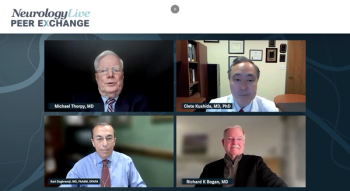
Drs Thorpy, Dogan, Doghramji, and Kushida discuss the frequency of symptoms encountered in patients who are diagnosed with narcolepsy.

Experts in sleep medicine discuss the clinical features of narcolepsy.
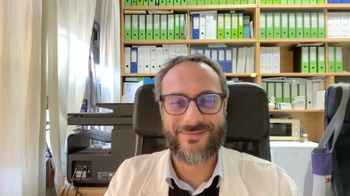
The associate professor of neurology at the University of Naples provided context on the mechanism of action for dimethyl fumarate and why there’s belief it can benefit patients with Friedreich ataxia. [WATCH TIME: 4 minutes]
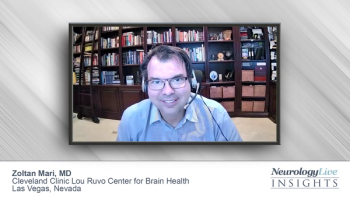
Zoltan Mari, MD, provides an overview of the use of smartphone applications to help patients manage PD, highlighting a keyboard typing assistance app.

An expert neurologist discusses sensory-based wearable devices used to control PD symptoms, commenting on challenges with these devices.
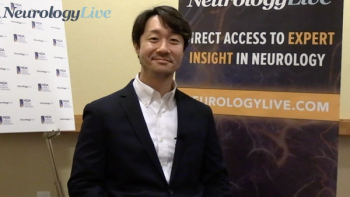
The chief executive officer at Elixirgen Therapeutics discussed the company’s mRNA as a promising therapeutic avenue for Duchenne muscular dystrophy. [WATCH TIME: 6 minutes]
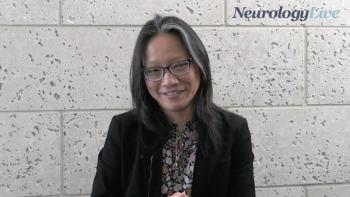
The director of the Multiple Sclerosis Program at the Cleveland Clinic’s Lou Ruvo Center for Brain Health discussed findings from a study that compared cognitive profiles between patients with multiple sclerosis and Alzheimer disease. [WATCH TIME: 5 minutes]
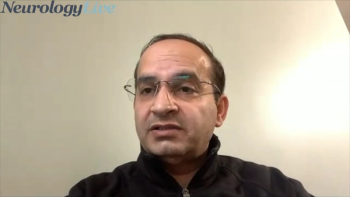
The associate professor of neurology at The Ohio State University Wexner Medical Center provided insight on research assessing the use of a developed artificial intelligence/machine learning tool for automated stroke scale calculation. [WATCH TIME: 6 minutes]
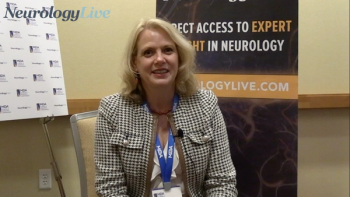
The professor of neurology at Vanderbilt University Medical Center discussed advocating for reinstating personalized resources, expanding genetic testing, and improving transitional care in muscular dystrophy. [WATCH TIME: 5 minutes]
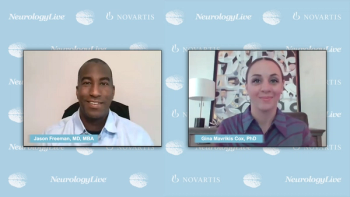
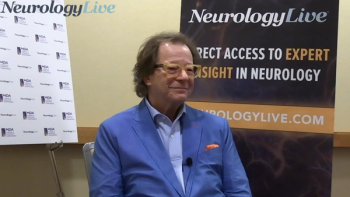
The president and chief executive officer of Satellos Bioscience provided an overview of the previously observed preclinical data supporting SAT-3247 as a potential therapy for muscular dystrophies. [WATCH TIME: 4 minutes]
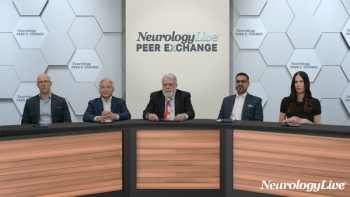
Experts in neurology comment on fatigue and fluctuation of symptoms in MG and how that can contribute to a delay in diagnosis.

Expert neurologists discuss the presentation of myasthenia gravis (MG), focusing on the variability of symptoms from patient to patient.
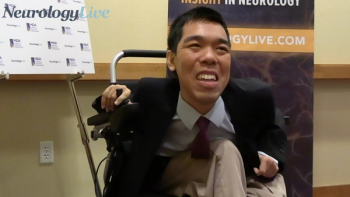
The second-year PhD student in bioinformatics at Boston University who lives with LAMA2 congenital muscular dystrophy talked about the potential impact and challenges of gene therapy in neuromuscular diseases. [WATCH TIME: 5 minutes]
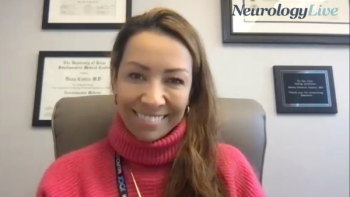
The neuromuscular specialist at the Neurology & Neuromuscular Care Center discussed the pressing need to address the transition of care from pediatric to adult healthcare systems in Duchenne muscular dystrophy. [WATCH TIME: 6 minutes]
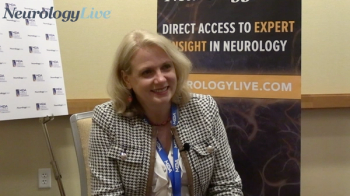
The professor of neurology at Vanderbilt University Medical Center talked about the importance of multidisciplinary care centers to improve accessibility and quality of care for patients with neuromuscular disorders. [WATCH TIME: 5 minutes]

Ahmed Obeidat, MD, PhD, Stephen Krieger, MD, and Erin Longbrake, MD, PhD, explore the concept of progression independent of relapse activity (PIRA) and the challenges of defining subtle accumulation of disability.

Ahmed Obeidat, MD, PhD, Stephen Krieger, MD, and Riley Bove, MD, discuss evolving understandings of continuum of MS and the mechanisms that cause relapse and the gradual accumulation of disability.
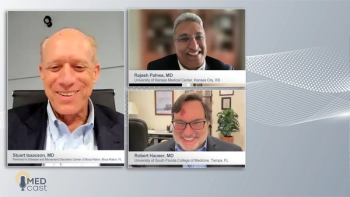
Expert neurologists discuss strategies to widen the therapeutic window of Parkinson’s disease and options available to treat dyskinesia, providing better control of Parkinson’s disease.
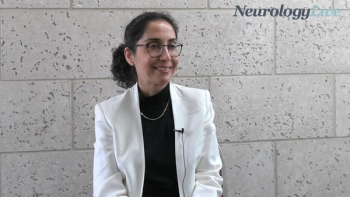
The assistant professor of neurology at Johns Hopkins Medicine talked about recent research that suggests activating the NLRX1 pathway could offer neuroprotection in multiple sclerosis. [WATCH TIME: 5 minutes]
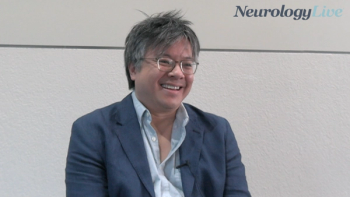
The associate professor of biology at Georgetown University talked about how immune cells can communicate with brain cells to enhance repair processes, which may offer potential treatment targets for multiple sclerosis. [WATCH TIME: 5 minutes]